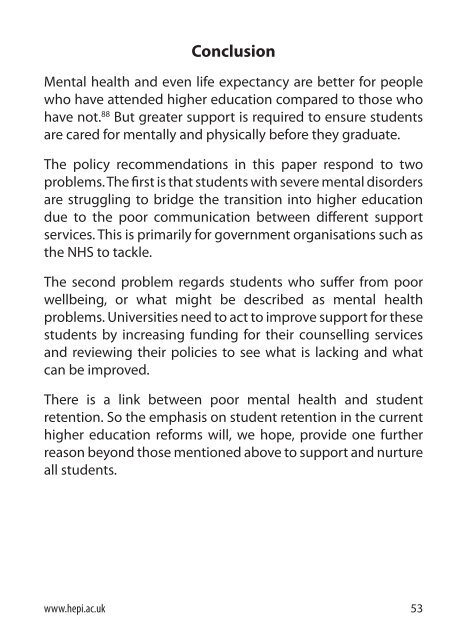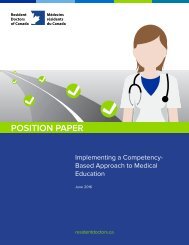The invisible problem? Improving students’ mental health
2cU9ATf
2cU9ATf
You also want an ePaper? Increase the reach of your titles
YUMPU automatically turns print PDFs into web optimized ePapers that Google loves.
Conclusion<br />
Mental <strong>health</strong> and even life expectancy are better for people<br />
who have attended higher education compared to those who<br />
have not. 88 But greater support is required to ensure students<br />
are cared for <strong>mental</strong>ly and physically before they graduate.<br />
<strong>The</strong> policy recommendations in this paper respond to two<br />
<strong>problem</strong>s. <strong>The</strong> first is that students with severe <strong>mental</strong> disorders<br />
are struggling to bridge the transition into higher education<br />
due to the poor communication between different support<br />
services. This is primarily for government organisations such as<br />
the NHS to tackle.<br />
<strong>The</strong> second <strong>problem</strong> regards students who suffer from poor<br />
wellbeing, or what might be described as <strong>mental</strong> <strong>health</strong><br />
<strong>problem</strong>s. Universities need to act to improve support for these<br />
students by increasing funding for their counselling services<br />
and reviewing their policies to see what is lacking and what<br />
can be improved.<br />
<strong>The</strong>re is a link between poor <strong>mental</strong> <strong>health</strong> and student<br />
retention. So the emphasis on student retention in the current<br />
higher education reforms will, we hope, provide one further<br />
reason beyond those mentioned above to support and nurture<br />
all students.<br />
www.hepi.ac.uk 53





